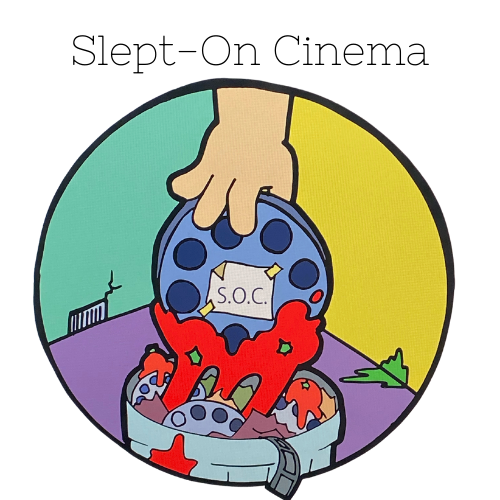Revisiting Gotham's Vibrant Chapter: Episode 14 Delves into 'Batman Forever'
Hello, cinephiles and caped crusader fans alike! Welcome back to another episode of Slept-On Cinema, where we bring into the spotlight films that have drifted into the shadows of cinematic history. In Episode 14, we're swinging into the neon-lit streets of Gotham with a deep dive into 1995's "Batman Forever," directed by Joel Schumacher.
"Batman Forever" marked a significant shift in the Batman movie saga, introducing a more flamboyant and colorful aesthetic compared to the darker tones of its predecessors. Val Kilmer dons the cape and cowl as Bruce Wayne/Batman, contending with a duo of deranged villains: Jim Carrey's enigmatic Riddler and Tommy Lee Jones's maniacal Two-Face. Alongside them, Nicole Kidman stars as Dr. Chase Meridian, Batman's love interest, and Chris O'Donnell debuts as the acrobatic Robin.
In this episode, we peel back the layers of "Batman Forever" to understand its place in the Batman anthology and its impact on the superhero genre. We discuss how Schumacher's direction steered the franchise into uncharted, more theatrical waters. The film's vibrant set designs, costumes, and overall tone were a departure from the gothic atmosphere of the Tim Burton era, reflecting a different vision for Gotham's protector.
We also explore the performances, particularly Carrey's frenetic portrayal of the Riddler, which became iconic for its energy and wit. Tommy Lee Jones's take on Two-Face and the dynamic between the two villains provides a foil to Batman's stoicism, injecting the film with a chaotic vibrancy. Kilmer's performance as both Batman and Bruce Wayne is dissected, discussing how he balanced the duality of the character amidst the film's louder elements.
The introduction of Robin brought a new dimension to the Batman movies, and we delve into how O'Donnell's character was received, the challenges of bringing such an iconic sidekick to life, and how his storyline added to Bruce Wayne's narrative arc. Nicole Kidman's role as Dr. Chase Meridian is also a topic of discussion, examining her chemistry with Kilmer and her character's impact on the story.
Despite its initial box office success, "Batman Forever" has often been overshadowed by both its darker predecessors and the more critically acclaimed reboots that followed. We discuss how the film has been reevaluated over time, appreciating its unique place in the Batman legacy and the broader superhero genre. Its contributions to the visual and stylistic elements of superhero cinema are also highlighted, noting its influence on subsequent films in the genre.
As per our tradition, we conclude with our "Slept-On Scores," evaluating the film's direction, performances, story, and overall impact. Whether you view "Batman Forever" as a campy detour or a beloved nostalgic piece, it's a film that offers a distinct and colorful interpretation of the Dark Knight's saga.
So, grab your utility belts and join us as we revisit the extravagant and energetic world of "Batman Forever." Stay tuned for more episodes as we continue to explore and celebrate the films that make us rethink what's possible in cinema. Until then, keep your bat signals ready and your love for movies strong!

